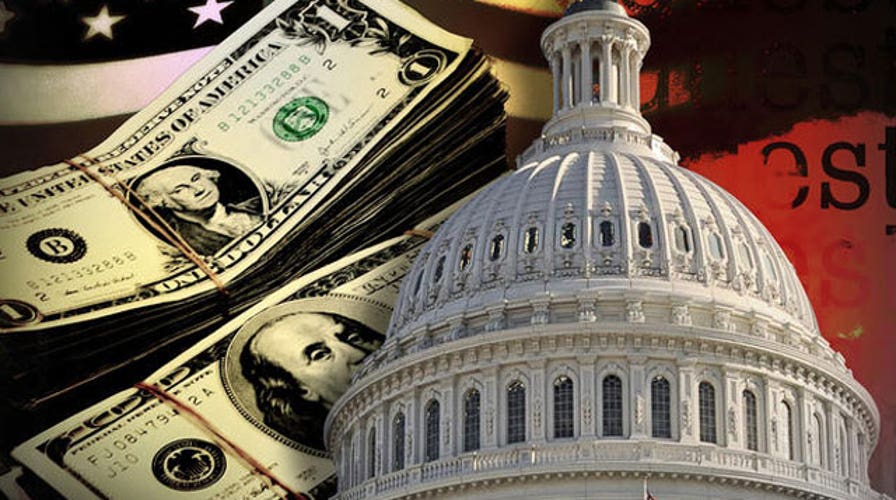Senate Democrats' budget plan is coming under increasing criticism from Republicans, who say it effectively pats itself on the back twice for savings that were only achieved once -- and even then, promises another $7.3 trillion in debt over the next decade.
The Democrats' plan passed out of committee last week on a party-line vote. It serves as the party's response to the Republican plan introduced in the House by Rep. Paul Ryan of Wisconsin.
Last week's announcements were complemented by a fast-paced round of partisan crossfire. Republicans accused Democrats of ignoring the national debt. Democrats accused Republicans of wanting to gut entitlements to preserve tax rates for top earners.
But there was a major disconnect in the way each side was calculating its numbers.
Democrats claimed all along their plan would achieve $1.85 trillion in deficit reduction over the next decade, half through spending cuts and half through tax hikes.
But the top Republican on the Senate Budget Committee, Sen. Jeff Sessions of Alabama, argues the plan is taking credit for the reduced spending level already achieved when mandatory, across-the-board cuts known as sequester took effect March 1.
The Democrats' plan would replace the sequester and build on that savings for a total of $975 billion in alternative cuts and $975 billion in tax hikes over 10 years. But, as Democratic staffers acknowledged during committee testimony last week, their plan also counts the replacement cuts toward their total deficit-reduction figure.
"I believe you're using the money twice," Sessions said, arguing that the true savings is more like $700 billion.
Despite Democratic objections that Ryan's plan did something similar, Republicans deny that.
Rather, the Ryan plan says it would achieve $4.6 trillion in deficit reduction over the next decade -- on top of the sequester cuts, which Ryan's proposal would still shift around to shield the Pentagon.
"Every dollar in savings in the House Republican budget is the result of new policy proposals," a Ryan spokesman told FoxNews.com on Monday. "There is no double counting in our budget."
The discrepancy means it's difficult to compare the two plans in terms of deficit reduction. "Placing these numbers side-by-side gives the highly misleading impression that the difference between the two plans is $2.6 trillion, rather than $4 trillion," Sessions' office said Monday.
A representative for Senate Budget Committee Democrats did not return a request for comment.
The disagreement over the basic facts could sully the negotiating waters, as President Obama tries to reach out to rank-and-file Republicans as part of what some call his charm offensive.
Neither budget document is likely to clear the full Congress, and so Obama is trying to once again bridge both sides toward a compromise plan.
Sen. Dick Durbin, D-Ill., speaking on "Fox News Sunday," praised Senate Budget Committee Chairwoman Patty Murray, D-Wash., for teeing up bigger-picture talks.
"Patty Murray has done an extraordinarily good job," Durbin said. "And then we're going to move to the next stage, and that is the grand bargain stage."
Murray blasted Ryan's budget for its changes to Medicare and Medicaid -- as in prior plans, Ryan proposes offering future retirees the option of taking government subsidies to buy health insurance.
"Their budget doubles down on the policies the American people rejected last election. It would be devastating for the middle class and the economy, it would dismantle Medicare and the programs families depend on -- and it would do all that while protecting the wealthiest Americans and biggest corporations from paying their fair share," she said in a statement.
But The Washington Post editorial board blasted the Senate plan as a "partisan" document that does not recognize America's fiscal straits.
"There is literally nothing -- not a word -- suggestive of trimming Social Security," the editorial said, adding: "In short, this document gives voters no reason to believe that Democrats have a viable plan for - or even a responsible public assessment of -- the country's long-term fiscal predicament."





